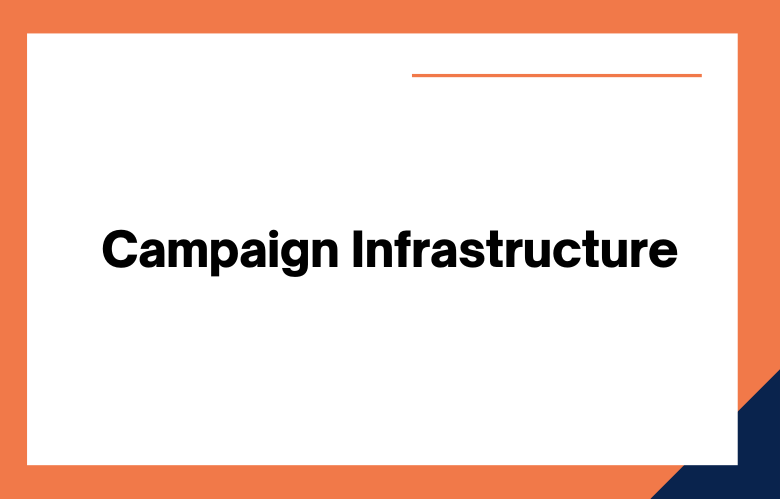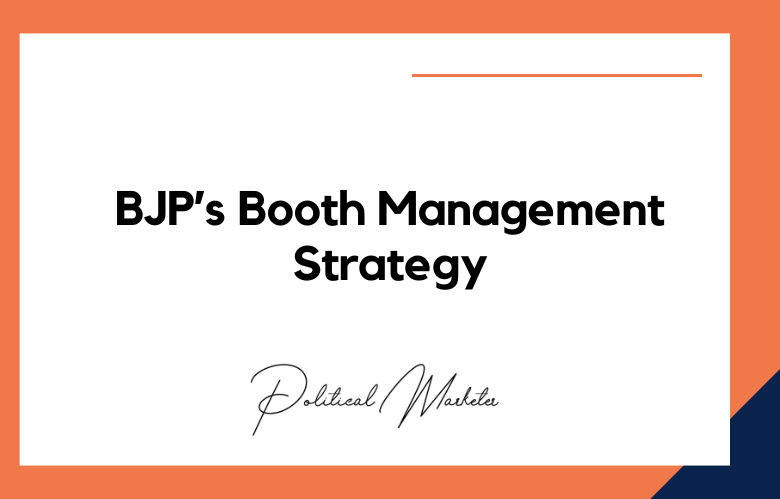During an election year, political campaigns rely heavily on technology to get their message out to the public. This includes social media accounts, websites, and email lists – all vulnerable to malicious attacks. As such, political campaigns must take the necessary steps to secure their infrastructure.
We’ll examine why infrastructure security is essential for political campaigns and some tips for keeping your campaign safe from cyberattacks.
What Political Campaigns Need to Know About Infrastructure Security?
Political campaigns are complex organizations that require much skill and resources to run effectively.
In addition to the operational challenges, political campaigns must also be aware of the potential threats posed by cyber security issues.
Political campaigns must be mindful of their infrastructure security to protect their data and digital assets from malicious actors.
What is Infrastructure Security?
Infrastructure security refers to the measures taken to protect physical and virtual components of networks and systems from attack, damage, or unauthorized access.
This includes a variety of steps such as authentication processes that confirm user identity, encryption techniques that ensure data can only be accessed by those with the proper credentials, firewalls that block unwanted traffic from entering a network, and regular patching to shore up vulnerabilities.
All these steps are designed to create an environment where the risk of a breach is minimized.
Why do Political Campaigns Need Infrastructure Security?
Political campaigns must be vigilant for cyber threats in today’s digital world.
With the increasing prevalence of malicious actors attempting to gain access to sensitive information, often intending to disrupt and derail a campaign’s progress,
it is more important than ever that campaigns have strong infrastructure security in place.
Why is Infrastructure Security Important?
Infrastructure security is critical in political campaigns because it helps protect against potential attacks on campaign resources such as voter databases or donor information.
Malicious actors could access this data without proper security measures and attempt to use it for their own gain.
If a campaign’s systems were compromised, it could create chaos within the organization and lead to costly repairs or lawsuits. As such, having infrastructure security in place can help reduce the likelihood of these risks.
Ensuring Campaign Infrastructure Security for Political Campaigns
In the age of digital technology, political campaigns must ensure their data is secure to protect themselves from cyberattacks.
This is especially important as campaigns prepare for upcoming elections. As more and more data is stored and managed digitally, campaigns must keep up with the latest security systems to protect their valuable information.
The Risks of a Cyberattack
A cyberattack on a political campaign can be devastating. It could lead to the theft of confidential information, damage the candidate’s reputation, or even disrupt voting systems.
Hackers could also target the campaign’s emails and social media accounts to spread false information or malicious links.
Political campaigns must protect themselves against these risks by utilizing strong security measures throughout their digital infrastructure.
Steps to Improve Infrastructure Security
When it comes to improving infrastructure security, there are several steps that any political campaign should take:
Set up a secure network with passwords and two-factor authentication.
A secure network will prevent unauthorized access and help protect confidential data from falling into the wrong hands.
Two-factor authentication adds an extra layer of protection by requiring a second piece of identification (such as a code sent via SMS or email) when someone tries to access your account.
Use robust encryption protocols for data storage and transmission.
Encryption scrambles data so it can’t be scanned, even if it falls into the wrong hands.
Storing data securely is especially important for sensitive information like donor records or financial information that must remain confidential under federal law.
Monitor for suspicious activity on your networks regularly and update software regularly.
Regular monitoring can help you identify potential threats before they become too severe, while regular software updates will ensure any vulnerabilities are patched quickly and efficiently.
Train staff on cybersecurity best practices and use training materials like phishing simulations and online courses to help them stay informed about threats facing your organization’s networks and systems.
The Basics of Infrastructure Security
Infrastructure security is a broad term encompassing various measures to protect networks, systems, and data from unauthorized access or manipulation.
The first step in implementing adequate infrastructure security is identifying the most critical assets on your network.
This includes any data that could be used for malicious purposes if exposed or stolen—such as voter databases, donor information, financial records, email accounts, and more.
Once you have identified which assets need protection, you can begin developing a plan for securing those assets.
Types of Cybersecurity Threats Faced By Political Campaigns
All political campaigns should be aware of and prepared for several cybersecurity threats.
These include phishing attacks, malware attacks, ransomware attacks, distributed denial-of-service (DDoS) attacks, and malicious insiders.
Each type of attack requires a different approach to security measures to protect against them.
Phishing Attacks
Phishing attacks involve sending malicious emails or links to unsuspecting victims to gain access to valuable information or computers.
Phishing emails often contain malicious links that download malware or prompt users to enter personal information on a fake website.
Political campaigns should use email filters and train employees to recognize phishing emails to prevent such attacks.
They should also consider using two-factor authentication for any accounts they manage online.
Malware Attacks
Malware attacks involve downloading malicious software onto a computer or network to access sensitive information or resources.
Such software can be downloaded through email attachments, websites, and other sources.
Organizations should keep their operating systems up-to-date with the latest security patches to prevent this attack and use antivirus software regularly.
They should also monitor their networks for suspicious activity and limit access granted by user accounts accordingly.
Ransomware Attacks
Ransomware attacks involve encrypting files on a computer or network to demand payment from the victim in exchange for unlocking the data again.
This type of attack is becoming increasingly common as hackers become more sophisticated in their techniques.
Organizations can prevent ransomware by regularly backing up important data and having multiple offsite backups in case something goes wrong with one backup source.
They should also restrict user access privileges so that only authorized personnel have full access rights to sensitive data elements like financial records or confidential client information.
Benefits of Infrastructure Security for Political Campaigns.
The benefits of having strong infrastructure security for political campaigns include increased confidence among donors and supporters that their private information will remain secure;
more excellent protection against malware attacks; reduced risk of financial losses due to data breaches or other cyber incidents;
Improved efficiency since operations can be run without worrying about potential threats, and peace of mind knowing critical campaign resources are safe from harm.
Implementing strong infrastructure security measures may boost public perception of a particular candidate or party as they show they are taking steps to ensure the safety of their constituents and supporters online.
Increased Security
One of the primary benefits of infrastructure security for political campaigns is increased security.
With the increasing threat of cyberattacks and data breaches, political campaigns need robust security measures to protect their data and systems.
By implementing infrastructure security measures such as firewalls, intrusion detection systems, and encryption, political campaigns can significantly reduce the risk of a successful cyberattack.
Improved Reputation
Another benefit of infrastructure security for political campaigns is an improved reputation. In today’s digital age, the public has become increasingly concerned about the safety of their data.
As such, a political campaign that can demonstrate that it takes data security seriously will likely be seen more favorably by the public.
This improved reputation can translate into increased support from voters.
Reduced Costs
In addition to increased security and an improved reputation, another benefit of infrastructure security for political campaigns is reduced costs.
The cost of a successful cyberattack can be high, often including recovery costs, legal fees, and damage to the campaign’s reputation.
By implementing infrastructure security measures, political campaigns can help to reduce these costs in the event of a successful attack.
Enhanced Privacy
Another benefit of infrastructure security for political campaigns is enhanced privacy.
With proper security measures, political campaigns can keep sensitive information such as donor lists and financial records confidential and secure.
This enhanced privacy can help to build trust with donors and other supporters.
Improved Efficiency
In addition to increased security, enhanced privacy, and reduced costs, another benefit of infrastructure security for political campaigns is improved efficiency.
By streamlining access to data and systems and implementing proper authentication measures, political campaigns can help to ensure that only authorized personnel have access to sensitive information.
This improved efficiency can help save time and resources while enhancing security.
Conclusion:
Ensuring the security of your digital infrastructure is one of the most critical steps any political campaign can take to protect itself from malicious attackers looking to disrupt elections or steal confidential information.
By setting up secure networks with passwords and two-factor authentication, using robust encryption protocols for data storage and transmission, monitoring for suspicious activity regularly, updating software, and training staff on cybersecurity best practices, you can ensure your campaign’s infrastructure remains safe from hackers during this election season—and beyond!
Call: +91 9848321284
Email: [email protected]











